SOPP589: I am in the process of memorizing a piece, based upon what I am learning in this course!5/20/2020
Vidas: Hello and welcome to Secrets of Organ Playing Podcast!
Ausra: This is a show dedicated to helping you become a better organist. V: We’re your hosts Vidas Pinkevicius... A: ...and Ausra Motuzaite-Pinkeviciene. V: We have over 25 years of experience of playing the organ A: ...and we’ve been teaching thousands of organists online from 89 countries since 2011. V: So now let’s jump in and get started with the podcast for today. A: We hope you’ll enjoy it! V: Let’s start episode 589 of Secrets of Organ Playing Podcast. This question was sent by Ruth. And she writes, Hi Vidas, I am in the process of memorizing a piece, based upon what I am learning in this course! I am also trying to keep in touch with members of my church, because we did not meet last week. V: Ruth is our Total Organist student, and probably she is writing about the challenges that she’s facing during a quarantine. First of all, let’s talk about the process of memorizing a piece. What method do you use, Ausra? A: Well, you know, now I am at such a stage of my age and life that I don’t have to memorize music anymore. V: It comes naturally to you. A: Yes, it comes naturally to me, but I don’t have to perform from memory, which is a big relief, because to be honest, the memorization and playing from memory was always the weakest spot of my entire musical career. And I still have these nightmares that I come to my piano exam, sit at my instrument, and I’m ready to play, and then I realize that I forgot everything. Absolutely everything. And I still have at times this nightmare. And I realized that never in my life I have started to memorize a piece on time. V: Mm hm. A: And I was always memorizing things in a hurry, and I was never really well prepared for it. V: Mm hm. A: So I don’t know how I did all these big exams and all these big programs, how I put them in my head somehow. V: Have you used Dupre’s method? A: No, because nobody taught me any kind of methods. When I was at school, I was just, said that I have to memorize, I would say, small episodes, like two measures at a time, and put them all together. V: Mm hm. A: And then I need to learn a few spots that I would be able to start and to play from them, if something would happen in the middle of my performance. V: Mm hm. A: So. And I was also advised, if I make a mistake, that I would not go back, but I would go forward. V: Oh, jump to the next…part. A: Yes, if you repeat from that previous spot, you might make a mistake in the same spot again. That’s how it works, because those muscles have their own memory. V: Yeah, it’s funny, because when you make a mistake, if you try to repeat it, your fingers will play the same thing, unless you consciously know what you were doing wrong. A: Yes, and you know, while playing organ, I think that the memorization is basically, all the organists, I think we memorize the music naturally while working on it. But during recitals, it’s probably not the best thing to play from memory, at least not if you don’t have the organ with the piston setting… V: Sequencer. A: Yes, sequencer. Because in most cases in Europe, you have to have assistants to help you, to change your registrations during your performance. And that we, let’s say at St. John’s church, when we played, for example, Symphonic Poem by Čiurlionis "In the Forrest", we had even two assistants from both sides of the organ. That we, if we would have to play it from memory, we would have to give the music to our assistants, and we would have to have two music stands. And it would be really uncomfortable and unnecessary. So it’s better to have one score in front of organists, and that we two or four people in our case can use it at one time. V: Correct. And of course newer organs, concert organs usually have combination actions and sequencers, even in Europe. A: Yes, but unless you have really good to great memory, phenomenal memory, if you are playing all your pieces from memory, I think it narrows down your repertoire list. V: Mm hm. Because it requires you to spend considerable amount of time just to memorizing it. A: And then you are just thinking if it is worth or not. V: Yes, imagine we’re sitting this, in our living room during the quarantine, and every day we tried to record something and put it on YouTube, most of the days we upload and share with our listeners. If we had to memorize each piece, I don’t know, maybe we could do only one video per week. A: Probably yes. V: Now we can do one every day most of the time. Sometimes the piece is too difficult, though, but yeah. When you have great sight reading skills, then it takes much less time to prepare, especially if you don’t memorize it. So Ausra, you don’t advise for folks to memorize the piece, or you do? A: Well, I don’t know what is her goal in memorizing it. V: Maybe she is taking our Memorization course, that’s why she’s doing it. I don’t know. A: I think it’s anyway, for each musician it is beneficial to memorize a piece once in awhile. I think it’s good for your brain. But I wouldn’t memorize every piece that I’m learning. V: You know, and memorization is, sometimes it’s a nice substitute to improvisation. When I was not improvising, I was sometimes memorizing a piece, like a real composition. And I would memorize it and then play it really fluently, and I would imagine that I am improvising this piece, even though it’s not mine. A: That’s funny. Well, and you know, it’s very difficult you see, because some pieces of music is really easy to memorize, but some are really hard. I remember when I memorized pieces, piano pieces, it was called Perpetuum Mobile. V: Mm hm. By… A: By a French composer, what was his name? V: Perpetuum Mobile, you think it’s French? I thought it was by Weber. A: No, no, no, no - it wasn’t Weber, it was French composer. You know the guy that wrote that big piece for organ and orchestra. V: (typing) Perpetuum Mobile… A: We are really getting old! But it’s hard to remember all the repertoire that we have done in the past. V: Yeah. It’s hard to find it. A: I think it’s Poulenc. V: Poulenc, yes! A: I think it’s Poulenc, yes. V: Let’s double check. I’m Googling it now. Poulenc… Yes - on the piano, right? A: Yes, yes. V: I don’t remember it. A: Yes. I played it and I memorized it, and basically this was the easiest piece to memorize for me from the entire repertoire, because it was so well constructed and so easy form, and very easy structure, and it was really easy to memorize. V: You have a great memory, Ausra! I don’t remember anything about it. A: Well, but it was very hard for me to remember the name of the composer, but I did it finally. (laughs) V: Perpetuum Mobile, or Trois mouvement perpétuel, a 1918 piano composition by Francis Poulenc. Ha - it’s from 1918 for piano. A: So this was the easiest piece for me to memorize out of my entire repertoire. V: Three movements, right? A: Yes. But the hardest was actually when I tried to memorize the Messiaen. And I did one of the pieces from his Cataloque of Birds. V: Mm hm. A: Alouette lulu I think it was. Oh, that gave me a really hard time. It was good hygiene for my brain. V: I wonder how to spell this bird, in French? Or this is Latin, maybe? A: No, that’s French I think. V: French, right. Let’s see... (laughs) I will double check it later. So, why was it so hard for you to memorize Messiaen? A: Well, because he used the whole range of the keyboard, and there were big jumps and difficult rhythms. And sort of, it was hard for me to grasp the form of this piece as well. It’s not like classical piece, not like sonata, where you have this exposition, the themes and then the development of the themes, and then you get the recapitulation at the end. And it’s really hard when it’s no common tonal structure, too. V: You have to get his compositional technique, really. A: And actually, I know his compositional techniques fairly well by now, but I don’t think it helps me to memorize his music. V: You know from the middle period, from 1930s, 40s, but not from 1950s and 60s. A: Yes, and this is really his late work, so. V: Mm hm. Plus bird calls, they are very spontaneous. A: True, true. V: You don’t really, you can’t really systematize those into modes and Hindu ragas and talas, and those influences. Or Gregorian chant modes, or Greek rhythms in bird songs. A: Well actually, when I was learning this piece from the Bird Catalogue, I had a parrot. And she would just go crazy while hearing me play Messiaen. V: Uh huh. Somehow she would recognize it. A: That’s right. V: She would, or he - it was a boy - he would think that you would be teasing him, right? A: I think so, yes. Because he would really get frustrated. V: I once had an experiment, and I recorded his song and played him back. And he went crazy. A: Poor bird! V: Poor bird! Yeah, I wonder if he understood what’s happening. A: Probably not. V: He would love to sit and look at the mirror for hours. A: He would be like bipolar. V: Bipolar? A: Yes, bipolar. Because one day he would look very gently at that mirror and try to touch it gently, but during the other day he would just go mad and would try to hit it, and…. V: Yeah, yeah. Wonderful parrot pet. So guys, thanks for sending us your questions. Please apply our tips in your practice. They really help, they really work. And remember, when you practice, A: Miracles happen. V: This podcast is supported by Total Organist - the most comprehensive organ training program online. A: It has hundreds of courses, coaching and practice materials for every area of organ playing, thousands of instructional videos and PDF's. You will NOT find more value anywhere else online... V: Total Organist helps you to master any piece, perfect your technique, develop your sight-reading skills, and improvise or compose your own music and much much more… A: Sign up and begin your training today at organduo.lt and click on Total Organist. And of course, you will get the 1st month free too. You can cancel anytime. V: If you like our organ music, you can also support us on Patreon and get free CD’s. A: Find out more at patreon.com/secretsoforganplaying
Comments
Vidas: Hi guys, this is Vidas.
Ausra: And Ausra. V: Let’s start episode 353, of Secrets of Organ Playing Podcast. This question was sent by Jonathan. He writes: Memorizing a 3-voice piece. I’m not sure how best to do this. I’ve been memorizing a phrase at a time, then gradually stringing them together. Any suggestions? V: This is seems like a good idea, right? A: Yes. That’s how I thought, when I was studying at school. That you need memorize two measures, then add next two measures, then two measures. It is actually… V: Mmm-hmm. A: But, really memorization is probably the hardest thing for me. And I have struggled with it for many, many years. But now when I’m thinking back, I think that I was just too lazy and didn’t start to memorize things on time. Sort of why I always fell behind the schedule and, right before exam or concert, I would be just faking out. V: Wait! You said you were too lazy. I thought I was the lazy one. A: Well, yes. Back at school I was lazy too. V: Wow! A: Not about everything but about memorization, yes. Somehow I always procrastinated this thing—starting to memorize pieces. V: Maybe that’s because nobody told you the technique, how to do it. A: No, I just was too lazy. Because if you would spend enough time with it, you wouldn’t have such a struggle. Of course there are different techniques, but you have also to know your structure of the piece, how it’s put together, and all these things but definitely there is no technique which will teach you to memorize things without putting effort into it. V: Yet! Maybe later you will have photographic memory, and then you can memorize right away. A: Well, I think what kind of memory you have since your birth, that’s what you have. And if you don’t have such a memory, photographic memory, you will not develop it. It’s not as easy. V: Remember how electronic organs sometimes have MIDI capabilities, and sometimes you can play a piece of music and record at the same time. And then push the button and the organ will play, playback for you. You can actually listen from the pews. A: So, what about… V: Maybe in the future we will have some kind of memory card inserted in our brains. A: I hope that not. V: And then we don’t need to memorize. Everything will be in the cloud. A: But right now, if you still have to memorize something, I would suggest for you to analyze the piece that you are working on and you have to memorize it. So this is the thing that I didn’t do when I was a child, and I think that’s a big mistake but nobody taught me to do it. So you need to know what form is your piece written in. You need to know the tonal structure of it. And then of course you need to do that memorization thing, and I would do it in phases—learn two measures, then add another two measures, and then another two measures and repeat everything from the beginning. And I think when you actually perform it, you will have no trouble. And when playing you really need to know in which exact spot you are, at the right moment. Because sometimes when we are playing from memory, we just let things happen. V: Mmm-hmm. A: And it works sometimes, and it works well sometimes but not always. Because suddenly if you will think about something, you might slip and you might lose the general flow and then you will not have idea where you are and what are you playing. Have you had such experience before, Vidas? V: Many times. A: So… V: That’s why I started improvising. So that I could play something even though I would forget what’s written on the page. A: Yes. And I think playing from memory, I still have this nightmare, time after time, that I’m back in the school and I have to play exam and I just don’t remember a thing. V: My nightmare is that I have to play an exam and I don’t even know the music. A: Well, I have that with organ recitals, this nightmare, that I’m sitting at the organ bench and I hear that bell towers already ringing… V: Uh-huh. A: And it means that I have to start my recital to play, and I look at the music rack and I don’t recognize these pieces at all. Or I recognize them and these are like massive organ compositions that I have played either many years ago or haven’t played at all. V: Reger. A: Yes, Reger, and all these big long compositions. V: My recent nightmare was that I had missed a piano exam of my student and now I myself have to play that exam. A: Instead of him? V: Instead of him. A: That’s a funny dream. But I guess it wasn’t funny when you dreamed about it. V: No. Just yesterday, last night, I had a dream that I went to the school and sort of, it was a meeting of piano teachers, and I, in the middle of that dream, I understood that I’m no longer a teacher there. A: Excellent. V: And I told everyone. A: Excellent. But in general, do you think when talking about organ music and memorization of organ music—do you think it’s a helpful and it’s a good practice to memorize things and to play, to perform from memory or not? What is your opinion? V: It depends on your goals. If you want to play just a few pieces perfectly, then yes. But if you want to play a lot of pieces, then it really slows down the process. It actually doesn’t help with your sight-reading skills, and you lose that ability to read many musical compositions fluently, if you just memorize things. It’s really good for blind people for example, and I would add actually to Ausra’s ideas about memorization, that Jonathan could try out Dupré’s method, how to memorize. It’s not in two measure phrases but in sentence long excerpts. A: So that’s four measures. V: Four measures, but not entirely in four measures. But first you repeat ten times, five times looking at the score and five times without looking at the score—one measure, just one measure. And then the same thing—the second measure, then the third measure and the fourth measure—basically each measure separately. Then the second stage is to do two measure excerpts—one and two, two and three, three and four. Then memorize three measures—one, two three, two, three four. And then finally one, two, three, four—entire sentence together, playing five times from the score, five times from memory. And always starting and finishing on the downbeat of the measure. And that helps to connect different fragments. And after you do that, you can take a break, or continue with the next fragment of four measures. And the next day maybe you start your practice with repeating previously mastered material a few times, and then learning something new again, four measures at a time. It’s very systematic. I’ve done this before, and it then helps me retain this music in my memory for a long time. A: For how long? V: For a month. And then after a month I have to repeat the process a little bit to refresh. A: Well, so it seems that it is much harder to keep your repertoire alive in that way if you memorize everything. Just think how much things you will have to repeat. V: Mmm-hmm. I guess this is for people who either have extremely good memory, you know, phenomenal memory, or who don’t play a lot of music. Maybe they have two, three hours total of repertoire and that’s it. And they do in cycles—refresh the memory and once they have three hours they’re set and tour the world. That could be done, but it’s not my goal, I mean it’s not interesting to me just to have that kind of music and not to learn anything else. But because it definitely requires… A: A lot of time. V: Lot of time and refreshing of memory of old memorized pieces. But I would advise anyone to try it as an exercise. You have to learn a few pieces this way. It’s very helpful, I think. A: Yes, definitely it is. V: In order to know what works for you and what not. A: That’s right. V: Alright! We hope this was helpful, right Ausra? A: Yes. V: And please keep sending us your questions. We love helping you grow. And remember, when you practice... A: Miracles happen!
Vidas: Let’s start Episode 96 of #AskVidasAndAusra podcast. And today’s question was sent by Rivadavia, and she writes that she struggles with lack of memory. Ausra, is it a common problem for people, do you think?
Ausra: Yes, I think so. Vidas: Did you have any students, when teaching, who complain that they can’t really memorize things and pieces? Ausra: Well, not so much; but performance anxiety--I get more of that. Being afraid that during a performance they will forget the music, and they will stop. What about you? Vidas: Myself, I struggled a lot with memorization, and that was actually probably one of the frustrations I had with my piano playing, back in school. Because normally, we had to play recitals and concerts and exams from memory, several pieces. Ausra: Sure. Vidas: And I just wasn’t good with that. I could sight-read rather well; but when my teacher told me to memorize a piece of music in a week or so, I just didn’t know how to do this. Ausra: Yes. And I remember that I always started to memorize pieces too late, and then I would be worrying so much when an actual performance would come. And I still have nightmares at nighttime, that I’m playing a recital or exams, and suddenly I forgot my music! Vidas: You’re not alone in this. I think just a couple of days ago, I had this lesson with my piano student at school, and for I think four weeks in a row, I’ve been nagging him to memorize his piano pieces. And one of the pieces is 3-part Sinfonia in d minor by Johann Sebastian Bach. And he just can’t seem to force himself to do this. The easier pieces that he’s playing, yes, he’s getting ready, and can at least play episodes from memory; but the tricky polyphonic texture, I think he delays it, postpones it; it’s a procrastination thing for him. Ausra: Well, that’s just too bad. Vidas: But kids, small kids, they don’t have problems with memory. I have a second grader who cannot read music, but can play everything from memory just fine. Ausra: Haha! Vidas: So that’s the opposite! Ausra: Yes, that way it’s easier for him just to memorize pieces for him--so that he won’t have to look at the music score! Vidas: He looks at his fingers, at the keyboard, and he memorizes the positions at the keyboard. Of course, he doesn’t understand anything about what he is playing! That’s another problem. Ausra: Hahaha. That’s true; but that’s what kids and beginners do. Vidas: Yeah. So guys, if you struggle with this, know that you’re not alone. I haven’t met a person who in some way, shape or form, doesn’t struggle with memorization. And I think the problem might have something to do with a theoretical understanding of what’s happening in the score. Ausra: And I guess some people are just more gifted than others, because the types of memory that human beings have are so different. For example, you could have very good visual memory. And I envy those people. Because I have heard such stories: for example, one pianist, he would perform a recital, and he would turn imaginary pages for himself, because he could just see the score in front of him. So that’s just unbelievable. Vidas: Or Marcel Dupré, who’s famous for having played I think 10 recitals in a row from memory, at the Paris Conservatory--the cycle of the entire organ works of Bach. And each recital was paced every 2 weeks. So basically, he had to know a gigantic amount of repertoire under his fingers from memory. Usually pianists and organists can play from memory maybe an hour’s worth of repertoire; maybe 2 hours, right (if it’s a long recital). Maybe if they are touring, maybe 3 hours at the most, if they have 2 recitals of 90min each, you see. That’s the most they can do. But Marcel Dupré managed to play everything from memory, 10 recitals in a row. That’s kind of unbelievable. Ausra: It is unbelievable. Vidas: And he did that I think 3 times, one in Paris and then I think twice in America. But he didn’t enjoy that--I’ve read that he didn’t want to repeat it that many times. Ausra: Yes, I think that’s just too much. Vidas: It’s torture! Ausra: Yes, even for him, that’s too much. Vidas: But it’s like a marathon, right? A very long race. Do you know who enjoys marathons? Professor James Kibbie. I’ve had a wonderful podcast conversation with him about his Bach project: he also recorded the complete works of Bach, and I think also from memory. But not in a marathon session like Dupré; but over a period of time, maybe over a period of one year, when it was Bach’s anniversary. He went to Germany, to the famous historical organs, and recorded. So he writes that he likes to run marathons, right? Ausra: Mhm. Vidas: And this strenuous, continuous running practice helps him to focus for long-term commitment to long cycles, such as recording all the music of Bach over one year, you see. Ausra: That’s amazing. Vidas: It is amazing. So guys, if you’re struggling, remember that everybody else is also struggling; but some people find something that works for them, running a marathon, or something else. So keep looking for that golden bullet, and keep looking for things that work for you specifically. Right? But I think you have to understand--we have to explain to people, Ausra--do you think that they should mimic their masters and try to copy them? To be like Marcel Dupré or James Kibbie? Ausra: I don’t think so. I think everybody has to find their own way, because we are all so different. Vidas: Yes. So guys, please be yourself; that’s the only thing that matters. And remember, when you practice… Ausra: Miracles happen.
Vidas: Let’s start Episode 83 of #AskVidasAndAusra podcast. Today’s question was sent by Radavia, and she writes that she is a beginner already, in advanced age--55 years old--in piano, and she loves organ. Radavia writes further:
“I have a virtual organ in my house (Grand Orgue software). My aim is to learn simultaneously the technique of the two instruments. I depend on reading (still easy) scores and I would like to memorize them, but I have some difficulty with this. Do you have memorization tips to achieve this goal? PS. Your site is very cool, but many of the techniques presented are still difficult to understand, for MY level of learning. I hope someday to get there ... with your help, if possible. Thank you very much, from Brazil, Radavia.” Wonderful, people are learning organ playing from different corners of the world, right Ausra? Ausra: That’s true! Vidas: Even though she’s a beginner, and some of our techniques and trainings are more advanced, I think she can really find out more for her level, right? But first let’s talk about what things would help her, when she would like to train herself how to memorize organ music. Ausra: Well, you have to memorize short passages. Vidas: Fragments of pieces? Ausra: Fragments, maybe just one measure at the beginning, and then add the second measure to that first measure; and so on and so forth. It’s a long process. Vidas: Remember, Ausra, when we were just starting playing the organ, nobody really taught us these things, and we didn’t have to memorize organ music... Ausra: Yes. Vidas: It wasn’t required. But piano-- Ausra: Piano, yes. Vidas: It was required. How did you feel about memorization in piano? Ausra: Actually, difficult. Vidas: It was difficult for me too. Ausra: I was always scared that during the actual performance I would have a memory slip. Vidas: I struggled with memorization a lot during these days, because my teacher would normally say, “Ok, next week, learn and memorize...let’s say…hands separately.” Or, “In two weeks, the entire piece both hands together.” That’s it. She didn’t somehow teach me a precise technique how to do this. There are various ways to do this, right? Ausra: That’s true. Vidas: Remember when we got to the states and George Ritchie told you about Walcha’s technique. Ausra: Well, because Walcha was a famous German organist and composer, and he was, unfortunately, blind. So he had to actually play from memory all the time. And learning a new piece, he would be learning it voice by voice. Somebody of his students or colleagues play for him one line of his piece, and he would memorize it. Vidas: A couple of measures, probably, first. Ausra: Yes, and then he would add the second voice, and so voice by voice he would memorize the entire piece, and learn the entire piece; so he would know it so well. And George Ritchie often used this method for learning music, himself. And I think this is a fascinating way. Maybe, of course, it’s time-consuming; now, in our modern times, we might not get so much free time to do this kind of thing. But that’s a good way to learn a piece really well. Vidas: The advantage of this technique is that after decades of not touching this piece, when you come back and play it from memory, you will discover that you almost can do this perfectly, except a few strange spots which you have to just double-check. Like, in one measure, is it a quarter note or an eighth note and eighth note rest in one voice? You don’t remember those exact details, maybe, after years of not playing this piece. Ausra: Yes; because, there are a few types of memory, actually, in each person. There is, this muscle memory, that works--let’s say, you keep repeating the same piece like a hundred times, and then your muscles, your fingers, will just remember. You can play it from memory even not thinking about it; but that’s probably not the best way to learn it. You can really use your brain to do it--understand how the piece is put together, how the structure works, which key you are playing in, what sequence you are playing in… Vidas: You mentioned key sequence--so people should also know music theory, probably? Ausra: I think everything should come in some sort of package. Vidas: That’s why we teach Total Organist concept. Ausra: Yes. And I think, with small kids--when they start learning, it’s harder to do that, because they don’t have the brain of an adult, and it’s harder for them to understand theoretical stuff. But if you are an adult, then things are easier. Vidas: Of course, maybe your hands will not move as fast. Ausra: Yes, that’s true, that’s two sides of the same coin. Young people have one advantage, and adults have another advantage; but I think we have to use that advantage that we have. Advantage of who we are. Vidas: And kids don’t usually have the inner motivation, perhaps? Ausra: Sure. Vidas: They need a push from external sources: teachers, parents, competitions, right? They want to win trophies and prizes, be first-prize winners, and basically be successful artists… I’m not saying that adults don’t want this, but they also have this inner motivation to perfect their art and skill; and sometimes it’s the only thing you need to keep going. Ausra: Yes, and learning music from memory, you just have to be patient, and to memorize it measure by measure. And then to learn some spots which would be easier for you to start over, if something happens during the performance, and you will have some breakdown so that you could pick up at another spot and play fluently, further. Vidas: Well, exactly. There is another technique that sometimes I like to use, which Marcel Dupré recommended in his Preface from 79 Chorales. He writes that it’s best to memorize all parts together at the same time right away, but memorize just one measure at a time, in groups of four-measure episodes. So you take measures 1, 2, 3, 4, separately, and memorize them. Then, you do 2 measures at a time--1-2, 2-3, 3-4; then you memorize 1-2-3, 2-3-4, and then 1-2-3-4 together. That’s your first fragment. When this is done, you can take a break, or come back the next day, maybe repeat the same thing a little bit, and then learn the next fragment of four measures similarly. Ausra: That seems very logical because a four-measure musical excerpt is a sentence, actually. And each sentence consists of four measures; and these four measures consist of two phrases; each phrase has two measures. And then, each phrase consists of two motives, and a motive is usually a measure long. So that’s very logical. Vidas: Exactly. Can we recommend people another course that we have created, remember “Memorize Easier?” Ausra: Yes, I think this course might help. Vidas: We describe various ways of memorizing organ music effortlessly; and we discuss that in greater detail in the videos, which you can then really apply in your practice, if you’re struggling with memorization. So guys, we hope this was useful to you; please send us more of your questions. This was Vidas. Ausra: And Ausra. Vidas: And remember, when you practice… Ausra: Miracles happen. By Vidas Pinkevicius (get free updates of new posts here)
Are you suffering when trying to memorize music at the organ? Do you practice for hours only to find out you can play just 2 measures of your organ piece? If so, let me help you. I have created a video course "Memorize Easier" in which with the help of J.S. Bach's chorale prelude from Orgelbuchlein "Wir danken dir, Herr Jesu Christ", BWV 623 I demonstrate all the steps required for an easy, fast, and efficient memorization. I personally use the same system when I want to memorize organ music. After you complete this training (you can use your own piece, not necessarily BWV 623), you will not need to struggle with memorization ever again because you can apply these steps to any piece you want. You can check out "Memorize Easier" here (50 % discount is valid until January 18). By Vidas Pinkevicius (get free updates of new posts here)
Are you frustrated at how difficult it is to memorize music when you're in your late 60's? I'm glad you still practice, though, still continue to improve. The mind is like a muscle, the minute we stop trying, it starts to degrade. The same is with the memory. Maybe at your age, everything takes longer to master but who's counting, right? [Thanks to Robert] By Ausra Motuzaite-Pinkeviciene Last summer was 20 years since I've graduated from the National M.K. Ciurlionis School of Arts in Vilnius, Lithuania. This school year was the 10th year of my teaching at the same school. So, as you can imagine I know this school well enough and feel most comfortable in it. Nevertheless there is one room that makes me feel miserable - that's the little concert hall, where all my piano exams took place.
You may ask why is it? Because in that concert hall I had to play all music by heart. Sometimes I still have nightmares in my dreams that I'm performing and suddenly I forget what's coming up next... I'm sure, many musicians share the same or similar memories and have many stories to tell. Now after many years of variuos musical practices I realized that the main problem of me having this horrible feeling about lost memory was that I wasn't well prepared. Of course, at that time I couldn't be honest with myself as I can be now. I always started to memorize my music too late, so I never had enough time to live with it and to feel comfortable during the actual performance. Of course I was raised as a professional, so I would still play it pretty much well, but that would cost a lot of my nerve cells. So if you have to perform from your memory, start to memorize well ahead of time. Be honest with yourself and hopefully you will avoid my nightmares. You can fool your listeners but you can't fool yourself. Voice leading challenge: Supply the tenor part to the above excerpt which is taken from my Processional March in C Major (try not to look at the answer ahead of time). Sight-reading: No. 5 Der Winter will hin wichen (p. 28) from Buxheimer Orgelbuch (ca. 1450), a German Renaissance collection of organ music. Hymn playing: All Depends On Our Possessing Ariane writes that her dream in organ playing is to pass the so-called "C-Exam" which in Germany qualifies organists to play in church services whenever and wherever they are needed. The first of her problems is that she might make the strangest mistakes in hymns and some easy pieces. Also she just cannot fit in more than one hour's practice time per day. Lastly, the memorization of music is her real weakness.
It's very inspiring for the people, like Ariane to want to prepare and pass special examinations which would give them a special certificate that they are qualified to be liturgical organists. It gives a great sense of focus because now it's no longer just a dream, it's a likely outcome. If you also want to pass the exams in your country, obviously the first thing is to build up a little bit of liturgical repertoire (at least some 12 pieces) - preludes, postludes, pieces for communion, and offertory, wedding processionals and marches, as well some funeral music. You would also need to be able to accompany hymns and psalms. In many cases, sight-reading, transposition, harmonization and basic hymn improvisation skills will be required, too. It is frustrating to watch yourself play and be quite unpredictable in terms of quality - mistakes in easy places or mistakes in difficult places or sometimes no mistakes at all. What does it all mean? I think it means you need to work even more diligently on getting the details perfected. Do you practice finger and pedal preparation repeatedly ? If not, you should be. This action which allows you to slide your foot with one swift motion into the new position for the next note and wait it here practically automates your pedal playing. The same can be said about the finger preparation, especially in leaps and places where you have to switch position. Check if you are depressing the pedals with the inside of your foot. This greatly adds to the overall precision of pedal playing. Use this time wisely, even if you have just one hour available, like Ariane. It's not too little to start seeing the results you want. If you still feel frustrated and doubtful it is because probably you are uncertain whether or not you are using this time effectively. Let me put it this way - it's way better to work on a couple of pieces in a deep level in this hour than to jump from one piece to another without actually achieving anything of value (unless you are sight-reading which has entirely different purpose). Memorization is a challenge for a lot of people. Even teachers often don't tell us how to do it. They say - memorize this piece or a page of this piece and bring it to me next week. That's not enough to start to feel at home and secure and calm when learning to play without the score. Regardless of what method you choose (voice by voice, like Helmut Walcha liked or measure by measure like Marcel Dupre recommended) here's what's really crucial - don't play the piece over and over hoping that one day you will learn it to play by heart. Yes, you might, but it's unpredictable - in time of stress when you have to play in front of other people, you might forget some crucial sections which will ruin your performance. The more ruthlessly systematic you become in learning to play by heart, the longer you can keep this music in your long-term memory. Margaret writes that her dream for playing organ is to play faster and without mistakes. For her the main obstacles which prevent her reaching this dream are the difficulty in reaching a faster tempo, eliminating mistakes and memorization of the score.
The dream that Margaret has is common to many organists. But it's not so easy to make it a reality. So often people can only play rather slow music and when they try to play faster, lots of mistakes appear. This is frustrating. If you experience such challenges as Margaret, you have to understand that it's better to play slower than with many mistakes. Therefore, choose the tempo according to your level of ability. By repeatedly practicing very slowly and reducing the texture to single voice and various voice combinations, you will be able to eliminate mistakes and reach the level when you can play rather slowly but fluently. If you want to play faster, perhaps you need a) to work on your technique and b) to practice your pieces at the concert tempo but stopping and waiting at the smallest fragment imaginable - a quarter note. Once you can play this way until the end of the piece at least 3 times without mistakes, stop every two beats, then one measure, two measures and so on always expanding your fragments and playing the music inside the fragment at the concert tempo but stopping, waiting and preparing for the next fragment. If you want to memorize music easier, you have to develop a systematic procedure of practicing short fragments 5 times while looking at the score and 5 times from memory. Usually the longest fragment you can remember this way is one measure. As you might have already guessed, after memorizing one measure fragments, start expanding them little by little from memory. If you haven't done so, try to learn something about keys, chords, chord progressions, cadences, and modulations. This will help you understand how your piece is put together and consequently facilitate the process of memorization. Sight-reading: 3. Begib mich nit myn höchster hort (p. 26) from Buxheimer Orgelbuch (ca. 1450), a German Renaissance collection of organ music. Hymn playing: Hark, the Voice of Jesus Calling Before you select your favorite method of memorizing organ music, you have to know the value of doing it in the first place. I recorded a few of my ideas in this video which hopefully will inspire you to give memorization a try.
|
DON'T MISS A THING! FREE UPDATES BY EMAIL.Thank you!You have successfully joined our subscriber list.  Photo by Edgaras Kurauskas Photo by Edgaras Kurauskas
Authors
Drs. Vidas Pinkevicius and Ausra Motuzaite-Pinkeviciene Organists of Vilnius University , creators of Secrets of Organ Playing. Our Hauptwerk Setup:
Categories
All
Archives
July 2024
|
This site participates in the Amazon, Thomann and other affiliate programs, the proceeds of which keep it free for anyone to read.
Copyright © 2011-2024 by Vidas Pinkevicius and Ausra Motuzaite-Pinkeviciene.
Terms of Service and Privacy Policy
Copyright © 2011-2024 by Vidas Pinkevicius and Ausra Motuzaite-Pinkeviciene.
Terms of Service and Privacy Policy


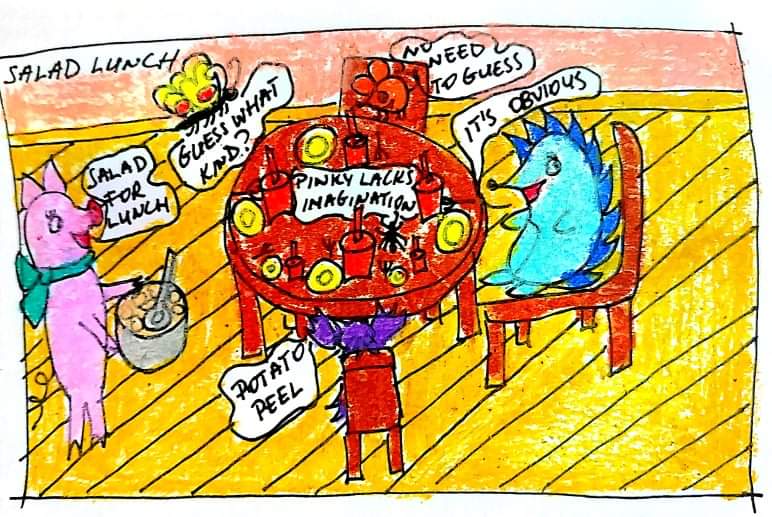
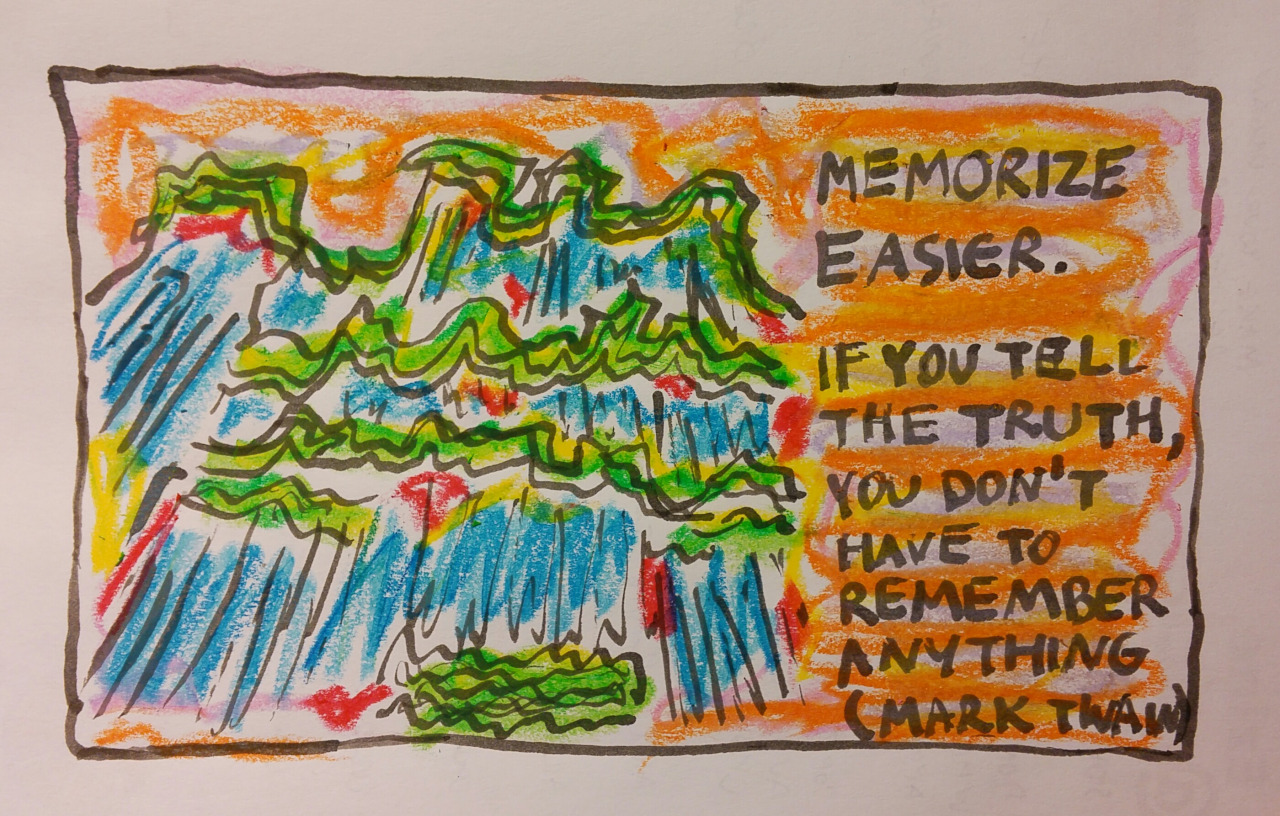
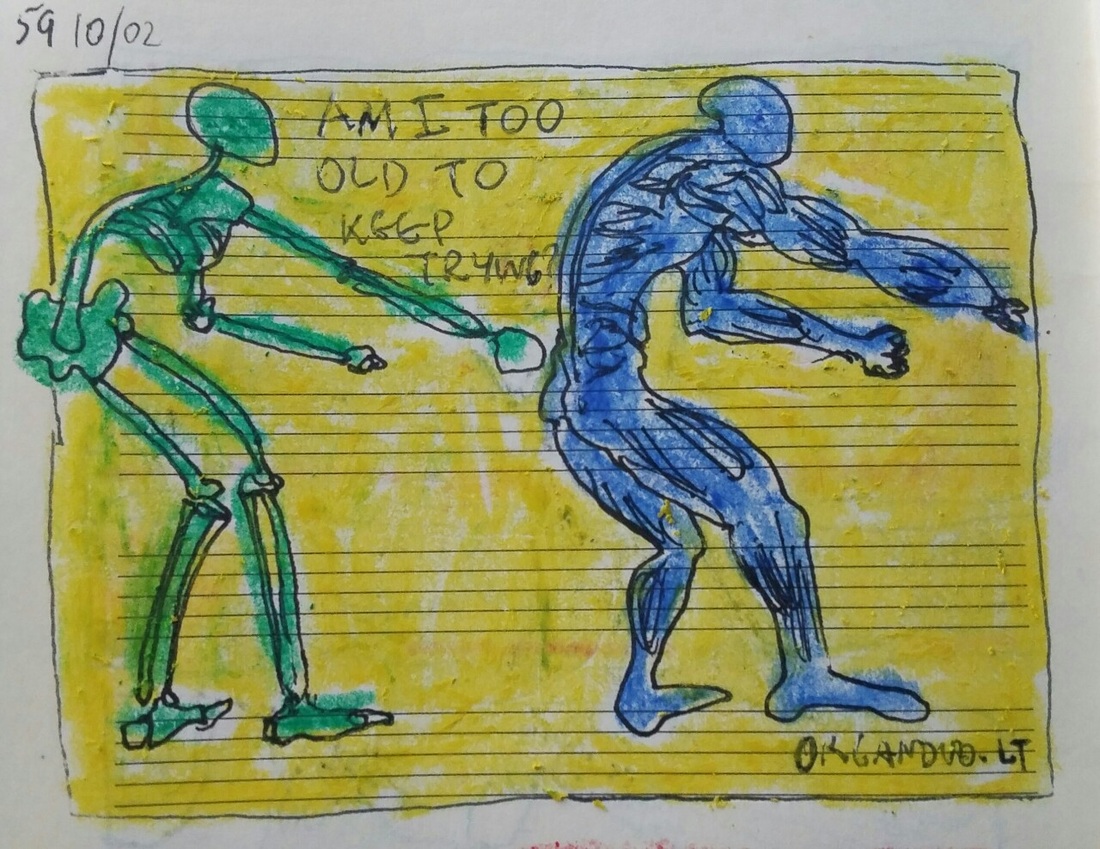
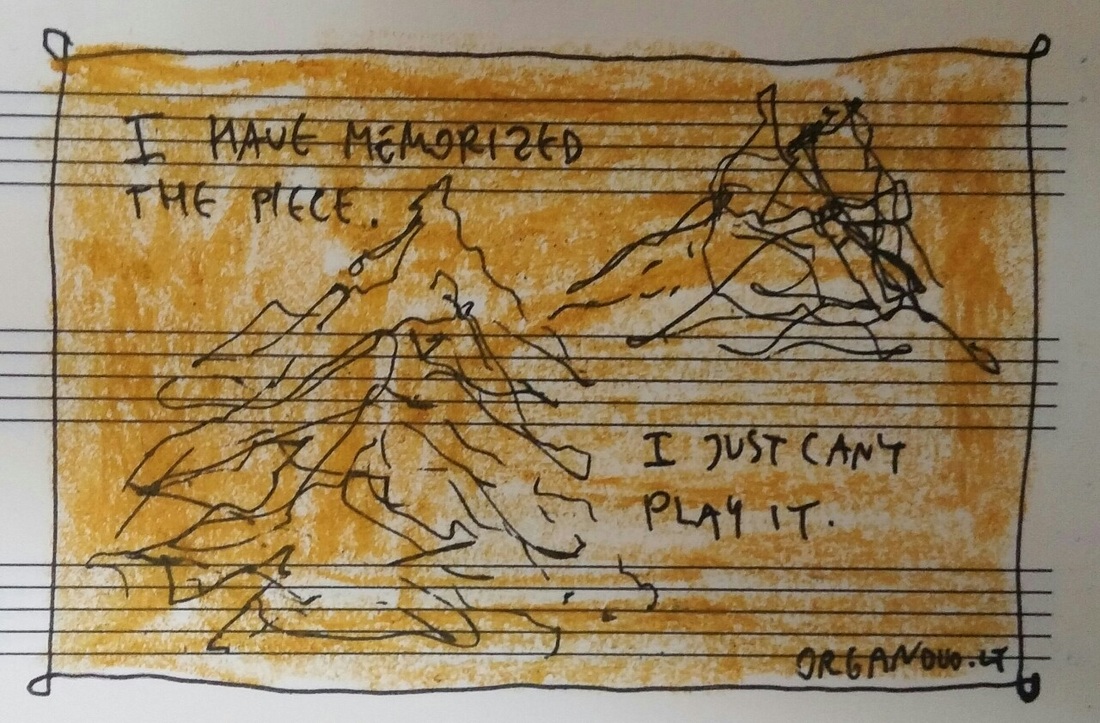
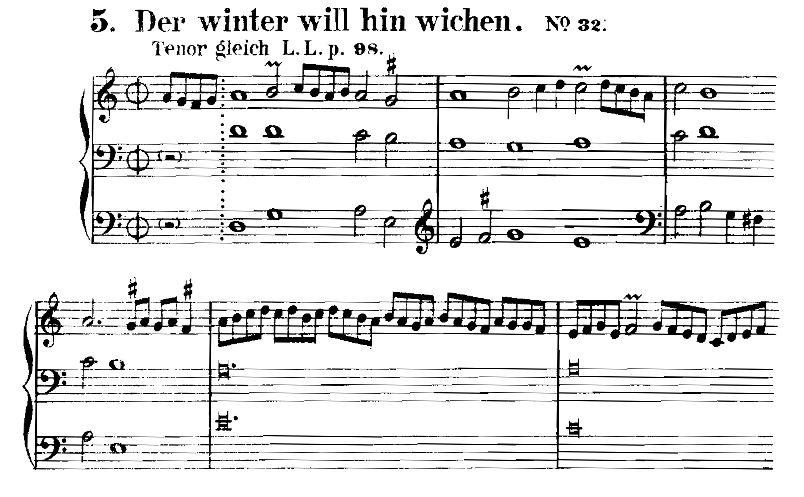
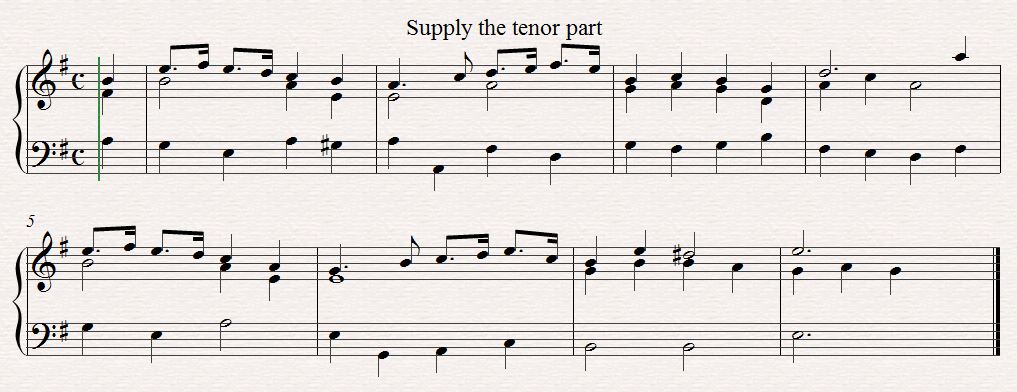
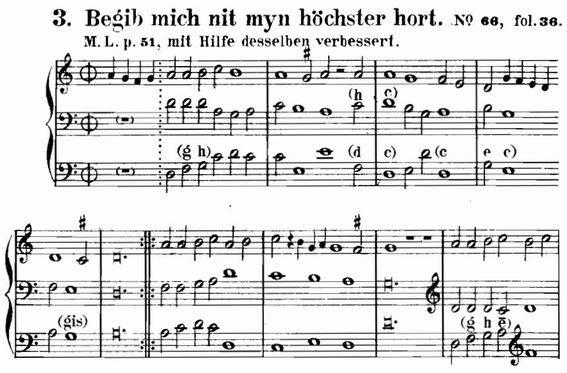



 RSS Feed
RSS Feed